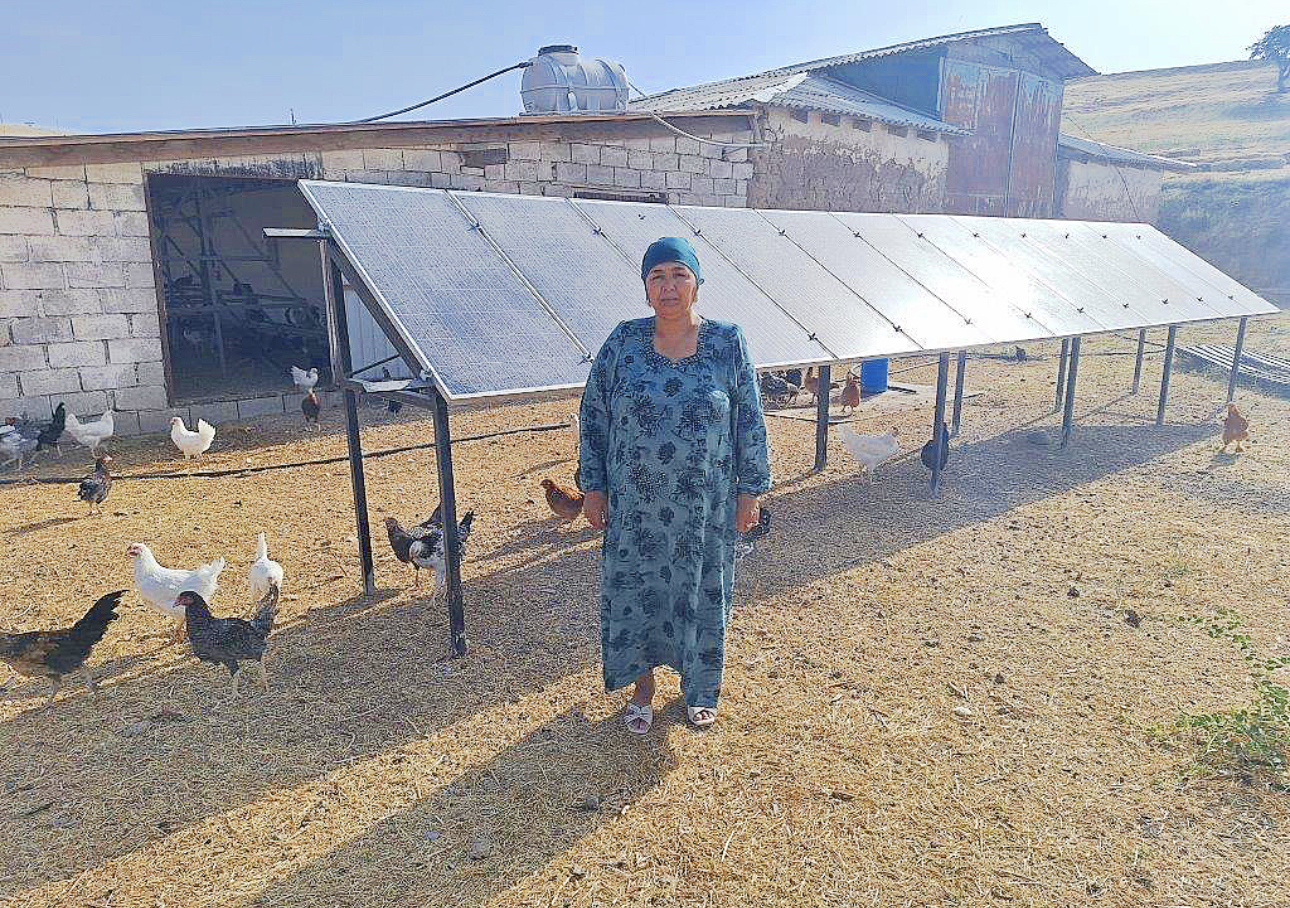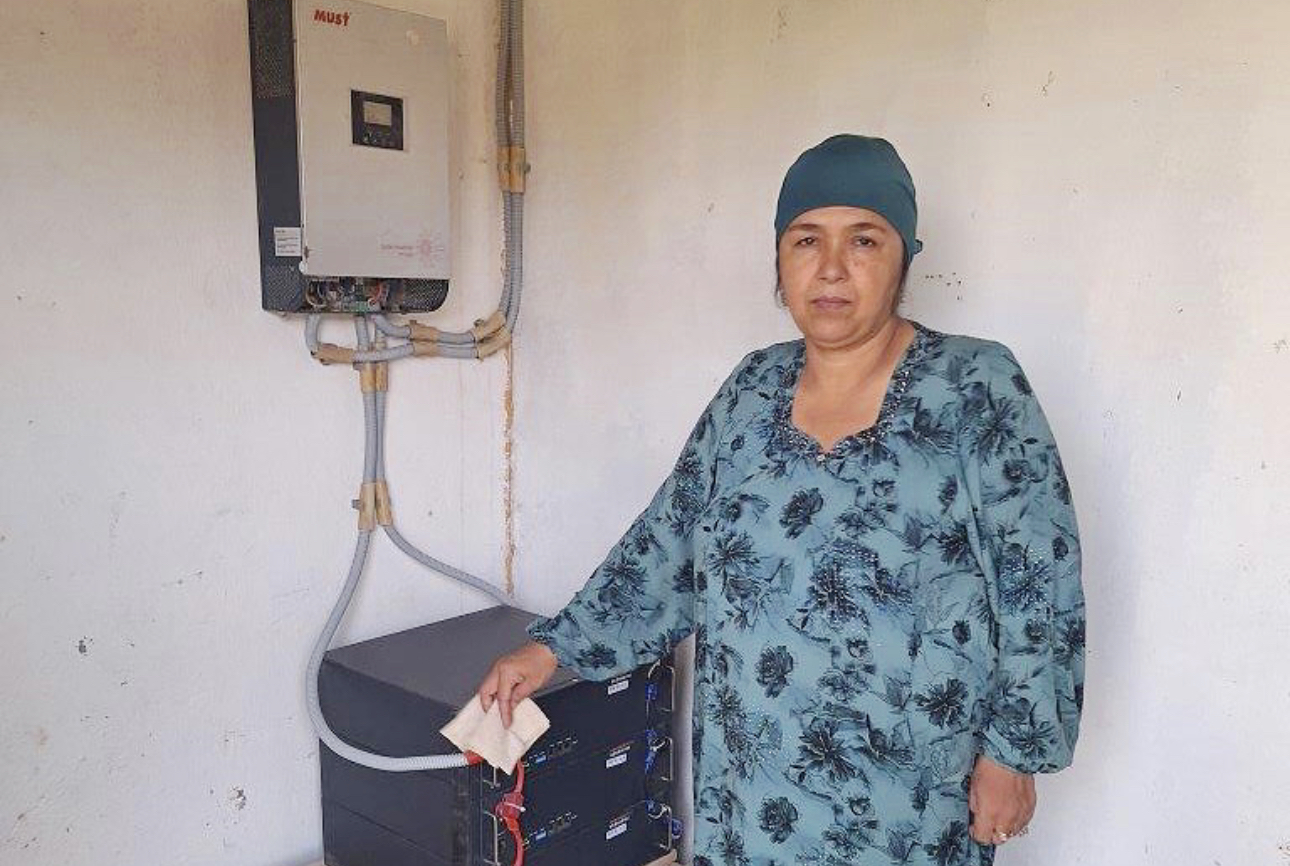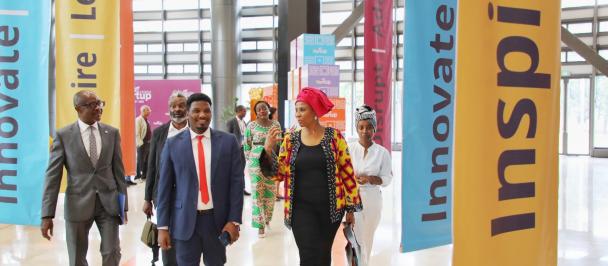Mahbuba’s Green Journey in Dara Village: A Tajikistani rural woman Inspires Community with Solar-Powered Poultry Farm
January 11, 2024

Mahbuba, near her poultry farm, Dara village in Baljuvon district, southern Tajikistan
Tacked among snowy peaks is the far-away village of Dara in Baljuvon district of Khatlon oblast, Tajikistan. Like other Tajikistani villages, Dara is home to hopeful farmers. Mahbuba is one of them, leading the way in using green energy technologies in her poultry business, supported by UNDP’s “Green Energy and SME Development Project” funded by GEF.
Mahbuba and her family of 7 members have been running a poultry farm for more than a decade with more than 2000 chickens producing 1200-1400 eggs daily.
The farm’s ecologically natural birdseed-fed chickens and their eggs have gained fame far beyond Khatlon oblast, encouraging Mahbuba and her family to expand egg production.
Poultry farming in a remote area has many difficulties. Reflecting on challenges, Mahbuba says, “We had a hard time caring for our chickens in the wintertime due to blackouts, relying on heating water with firewood or a diesel-based generator.”
It is worth highlighting that hot water serves various purposes in poultry farms such as preparing feed, washing dishes, and cleaning equipment. Warm water is also essential for the proper functioning of egg washers on poultry farms.
Additionally, in colder seasons, heated water is utilized for cleaning premises. The application of hot water in washing poultry houses effectively diminishes the level of biological contamination on surfaces, thereby reducing the opportunistic load on the livestock facility.

Mahbuba in her poultry farm, Dara village in Baljuvon district, southern Tajikistan
Facing blackouts and fuel shortages, Mahbuba sought alternative options for providing her farm with hot water, resorting to diesel generators. Her journey with green energy started when she discovered the potential of solar technologies.
A newspaper article highlighting a grant from the UNDP-GEF “Green Energy and SME Development Project” served as the catalyst for change.
Recognizing the opportunity, the farmer applied for the grant, resulting in the installation of a 5 kW solar system on her farm.
This strategic move not only alleviated her reliance on traditional energy sources but also positioned her poultry farm as a model for the harmonious intersection of entrepreneurship, sustainable energy, and community development.
The grant selection for this project rigorously evaluated applications, including Mahbuba’s, emphasizing feasibility, sustainability, and local impact. Chosen projects, like Mahbuba’s solar installation, showcased innovation and commitment to environmental sustainability, aligning with the initiative’s overarching goals for positive economic and environmental impact.
With the newly acquired solar system, Mahbuba articulates, “Now the solar system provides enough power to meet the needs of my business and my family and now we can operate our poultry farm throughout the year, without worrying about blackouts or fuel shortages, and use the excess electricity to charge phones, watch TV, and use other electrical appliances. This solar system has been a lifesaver for us. It also has reduced the energy costs by more than 50% because we reduced the expenditures for the use of diesel and petrol generators”.
The poultry farm has been a success story for this woman-led family business, which has seen its annual profit increase by 8.9% since it started the business. The farm has also created employment opportunities for other women in the community, who work as egg collectors, cleaners, or sellers. Furthermore, the quality of poultry products improved significantly due to the stable power generation with the newly installed PV system.
Mahbuba is proud of her achievements and is a role model for other women in her community. She inspired other villagers to adopt solar technologies (PV systems) for their homes and businesses, who are in fact considering applying for grants in the future when available. She also formed a network with other women entrepreneurs in the region, who share their experiences and best practices. They hope to expand their business in the future and reach more markets.
UNDP’s "Green Energy and SME Development Project," funded by GEF, commenced in July 2018 and runs until February 2025. To date, the project has positively impacted the livelihoods of 34 individuals like Mahbuba, whose businesses transformed for the better.
UNDP and GEF take pride in supporting the Government of Tajikistan on its journey toward a greener future.

 Locations
Locations



